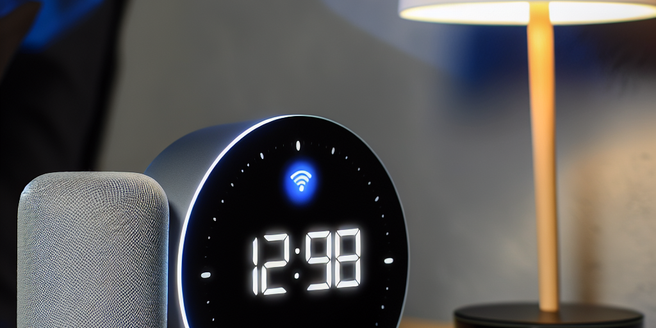Smart Alarm Clocks

Understanding the Features of Smart Alarm Clocks
Smart alarm clocks come with an array of sophisticated features that go beyond just waking you up. Many models offer integration with smart home devices, allowing you to control lights, thermostats, and even coffee makers. Voice control is also prevalent; you can give commands to set alarms or inquire about the weather. Customizable alarm tones, ranging from nature sounds to your favorite songs, enhance the waking experience. Some models feature sleep tracking capability, offering insights into your sleep patterns. A gradual sunrise simulation can gently wake you by increasing light intensity, mimicking a natural morning. The snooze function has evolved, utilizing motion sensors that let you wave your hand to activate it. Understanding these features can help you leverage your smart alarm clock fully.
Benefits of Using a Smart Alarm Clock
The benefits of using a smart alarm clock are numerous, and technology plays a pivotal role. One of the key advantages is the ability to customize alarms to suit your needs, from setting them for different days to choosing relaxing wake-up sounds. The integration with smart home systems provides added convenience; imagine waking up to a home where the thermostat has already adjusted to your liking, and the lights gradually illuminate. Sleep tracking helps you improve your sleep quality by analyzing patterns and suggesting adjustments. Some models even monitor room conditions like temperature and humidity, offering tips for better sleep environments. The ability to control alarms via smartphone apps also means remote settings adjustments are possible, adding an extra layer of flexibility.
Top Smart Alarm Clocks on the Market
Increased demand for smart alarm clocks has led to a variety of options on the market. Some top contenders include the Amazon Echo Spot, which offers seamless Alexa integration. Philips Wake-Up Light remains popular for its natural sunrise simulation, positively impacting your wake-up routine. For sleep tracking enthusiasts, the Withings Sleep Analyzer integrates perfectly with your health apps. Lenovo’s Smart Clock is another crowd favorite, featuring Google Assistant functionality and a minimalist design. Hatch Restore is renowned for its relaxation features, offering both sleep-aiding and wake-up light functions. For a blend of aesthetics and functionality, the Tivoli Audio Model One Digital is a choice worth considering. When choosing, consider the features most relevant to your lifestyle for the best match.
How to Choose the Right Smart Alarm Clock
Choosing the right smart alarm clock involves considering several factors tailored to your personal needs. Start by identifying the features you prioritize, such as voice assistant compatibility, sleep tracking, or natural light alarms. Budget plays a crucial role; higher-end models often offer more features but come at a premium. Consider the user interface and ease of setup; some prefer a clock with app control while others appreciate manual settings. Check for compatibility with other smart home devices to enhance integration. Evaluate the sound quality if you plan to use it as a speaker. If space is a concern, opt for a compact design. Remember to read reviews and consult ratings to gauge user satisfaction and reliability before making a decision.
Integrating Smart Alarm Clocks with Smart Home Systems
Integrating your smart alarm clock with smart home systems can elevate your daily routine to new heights. Most smart alarms are compatible with popular ecosystems like Amazon Alexa, Google Home, and Apple HomeKit. This compatibility allows you to control lighting, adjust the thermostat, and start the coffee maker, all before getting out of bed. You can create routines that automate multiple actions triggered by the alarm, enhancing convenience. For instance, a wake-up routine might gently brighten your bedroom lights, start playing your morning playlist, and display the weather forecast. Such integration not only streamlines your morning but also adds a level of interconnected efficiency. Ensure your devices are compatible to unlock their full potential.
Future Trends in Smart Alarm Clock Technology
The future of smart alarm clocks looks promising, with technology steadily advancing to incorporate even more innovative features. Artificial Intelligence and Machine Learning are set to play greater roles, offering personalized wake-up experiences adjusted based on your sleep patterns and preferences. Increased interoperability with health apps will provide users with more comprehensive sleep and health data. The incorporation of renewable energy sources, like solar power, is being explored to offer more environmentally-friendly options. Voice recognition capabilities are expected to become more sophisticated, allowing for more nuanced interactions. The portability of devices may also improve, with compact, travel-friendly designs anticipated. As the smart home ecosystem expands, smart alarm clocks will likely evolve to serve as integral components of increasingly connected homes.